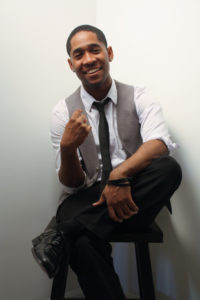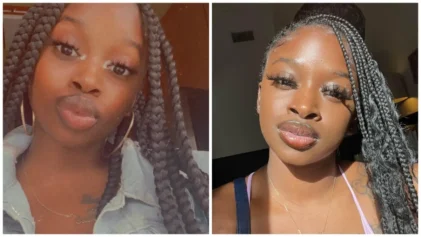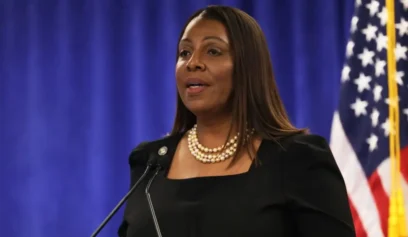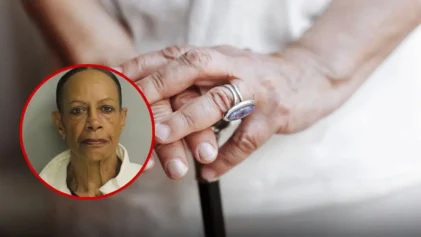Advancing his latest entrepreneurial venture, Howard R. Jean, an education and professional development consultant, headed east to Washington, D.C., and right away began “beating the pavement.”
Even as he had built a track record for creating and implementing professional development programs that delivered results, the goings were rough for the South Carolina native as he worked rooms to make the connections he needed to elevate his consulting business.
But he persevered. With these experiences still fresh in mind, Jean, along with Randall Keith Benjamin II, a transportation and community development consultant, is helping other young men make those similar connections.
In collaboration with the U.S. Black Chambers Inc., Jean and Benjamin are getting ready to recruit the second cohort of entrepreneurs for their Black Male Entrepreneur Institute, a 12-week training program that aims to connect African-American men with the resources they need to help them launch and grow their businesses.
The idea behind the BME Institute began when Jean and Benjamin were chatting with Chambers president Ron Busby about where the chamber could find Black male entrepreneurs and what it could do to help them succeed.
Jean thought about the challenges he faced building his independent consulting business.
“I didn’t have the business training to develop the infrastructure, so it was a very sharp learning curve,” says Jean, who on a tennis scholarship earned a bachelor’s degree in elementary education and later an advanced degree in the field. Even with several years’ experience teaching in classrooms and developing training initiatives for other institutions, Jean says, “I had to learn on my own what it took to drive success.”
The BME Institute kicked off earlier this year after Jean and Benjamin convened more than 40 Washington, D.C.-based entrepreneurs to participate in a four-month program derived from curricula offered at top business schools. The program featured workshops and seminars designed to educate and advise the entrepreneurs on how to secure clients, develop their brand and grow their businesses.
Moving forward, Jean and Benjamin aim to offer four training sessions a year in the Washington, D.C., metropolitan area. It is seeking sponsors and partnerships to rollout the program in other U.S. cities.
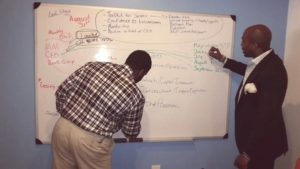
“The other goal is for these guys to work together to create the leverage for all of them to be successful,” Jean said.
Even as African-Americans operate a respectable number of small businesses, receipts for these 1.9 million companies average $50,000 with a majority of them sole proprietorships, according to the U.S. Small Business Administration.
“It’s not just about creating businesses,” Benjamin said in a recent interview with NewsOne Now anchor Roland Martin. “It’s about building the opportunity to create jobs and to create more for the community.”
They likely are looking for more entrepreneurs like Ben Carter.
Shortly after completing undergraduate studies in broadcast journalism and graduate work in advertising, Carter, in 2010, began crafting his vision toward the 2014 launch of “Manage Your Damn Money,” a blog and YouTube channel along with educational content that aims to bring a “cool” factor into discussions about personal finance.
Carter says that his experiences in this first class of the BME Institute have been invaluable to helping him develop his business.
“There’s no real prescription among the Black community in how to start a business,” Carter said. “You stumble through the process.” Through BME Institute’s meetings, seminars and networking events, Carter says that he has met people “several miles down the road from his journey” toward developing MYDM into “the baddest personal finance management show you’ve ever seen.”
Through its head-turning name, webcast segments featuring the musings of banking and investment professionals and artists alike along with blog content in which the latest post describes a set of circumstances where it was better to use credit over debit to pay for dinner and drinks, Carter hopes to get others in his generation talking about how to get, grow and guard their money.
“That’s where there’s no real relevant information and where gains can be made in planning,” says Carter, who developed his passion for money management while a teenager on the lookout for ways to earn extra money.
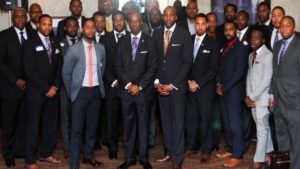
The target audience for MYDM content doesn’t stop at gainfully employed college graduates who have options for building wealth through automatic contributions into a company-sponsored savings plan.
According to a recent FDIC survey, almost 8 percent of U.S. households don’t have their own savings or checking accounts and instead manage their money through alternative financial services such as prepaid debit cards. Twenty percent of households have bank accounts but also rely on such alternatives. And recent surveys estimate that between 44 percent and 76 percent of Americans are living paycheck to paycheck. That’s also Carter’s audience.
He also wants to speak those who earn hourly wages for retail, restaurant and other businesses that typically don’t offer corporate savings plans. He also wants to speak to workers who have opted not to secure a bank account because they aren’t able to maintain deposits that satisfy the minimum account balance that a bank may require.
His goal to help consumers see where they can cut corners and find money to put away for a rainy day comes from personal experience.
“When I first moved to D.C., I was making $11.50 an hour, but that was a 100 percent living wage,” Carter said. He paid the bills on this salary and also found ways to save, such as by canceling his cable TV subscription after realizing how expensive the service was given the few hours a month he spent using the service.
Carter is set to launch the second season of MYDM webcasts this summer.
